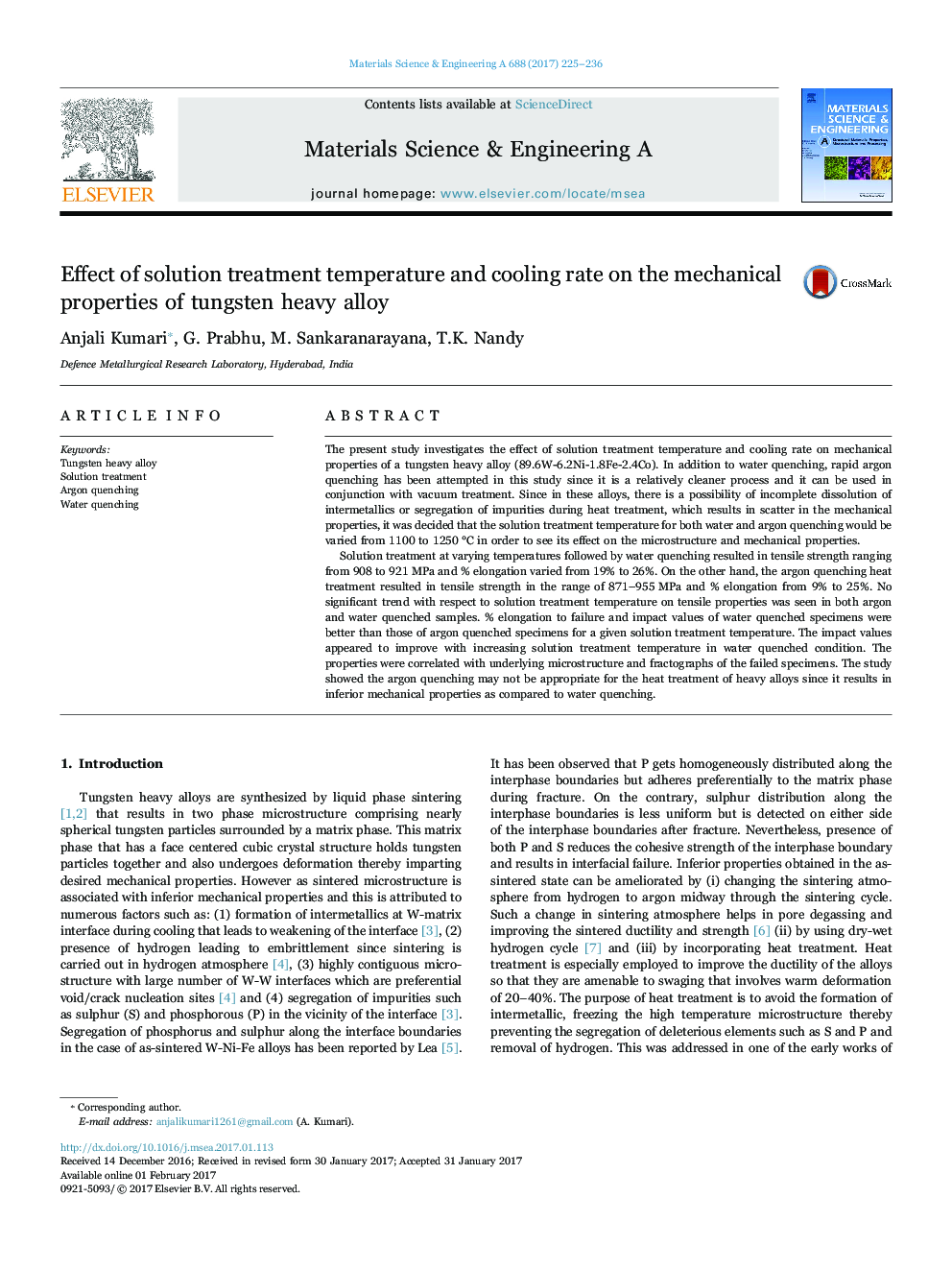| Article ID | Journal | Published Year | Pages | File Type |
|---|---|---|---|---|
| 5456193 | Materials Science and Engineering: A | 2017 | 12 Pages |
Abstract
Solution treatment at varying temperatures followed by water quenching resulted in tensile strength ranging from 908 to 921Â MPa and % elongation varied from 19% to 26%. On the other hand, the argon quenching heat treatment resulted in tensile strength in the range of 871-955Â MPa and % elongation from 9% to 25%. No significant trend with respect to solution treatment temperature on tensile properties was seen in both argon and water quenched samples. % elongation to failure and impact values of water quenched specimens were better than those of argon quenched specimens for a given solution treatment temperature. The impact values appeared to improve with increasing solution treatment temperature in water quenched condition. The properties were correlated with underlying microstructure and fractographs of the failed specimens. The study showed the argon quenching may not be appropriate for the heat treatment of heavy alloys since it results in inferior mechanical properties as compared to water quenching.
Related Topics
Physical Sciences and Engineering
Materials Science
Materials Science (General)
Authors
Anjali Kumari, G. Prabhu, M. Sankaranarayana, T.K. Nandy,
